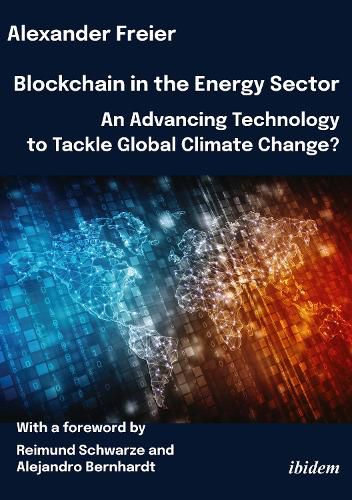Readings Newsletter
Become a Readings Member to make your shopping experience even easier.
Sign in or sign up for free!
You’re not far away from qualifying for FREE standard shipping within Australia
You’ve qualified for FREE standard shipping within Australia
The cart is loading…






Renewable energy sources became a key research focus in the field of global environmental governance. Within this context, new technical innovations seek to overcome challenges resulting from volatile renewable energy production and lacking storage capacities. Blockchain, a distributed ledger technology using cryptography, gained prominence as an integral component within the increasingly decentralized and digitalized global energy infrastructure.
Against this background, Alexander Freier argues that the application of blockchain technologies represents a viable option to both enhance the efficiency and balancing of renewable energy as well as to subsequently reduce GHG emissions if the following three components are met: the ongoing implementation of technological advancements, an adequate global normative framework, and general trust on behalf of key market actors to promote blockchain in the energy sector on a global scale.
Departing from an analysis of the relationship between climate change and energy, Freier conducts a legal analysis to explore possible ?bottom-up? perspectives for the implementation and transfer of technological innovation derived from climate contracts. This analysis examines the technological infrastructure surrounding blockchain energy as well as its application to the Brooklyn MicroGrid in the US and the WindNODE trading platform in Germany from an International Relations perspective.
$9.00 standard shipping within Australia
FREE standard shipping within Australia for orders over $100.00
Express & International shipping calculated at checkout
Renewable energy sources became a key research focus in the field of global environmental governance. Within this context, new technical innovations seek to overcome challenges resulting from volatile renewable energy production and lacking storage capacities. Blockchain, a distributed ledger technology using cryptography, gained prominence as an integral component within the increasingly decentralized and digitalized global energy infrastructure.
Against this background, Alexander Freier argues that the application of blockchain technologies represents a viable option to both enhance the efficiency and balancing of renewable energy as well as to subsequently reduce GHG emissions if the following three components are met: the ongoing implementation of technological advancements, an adequate global normative framework, and general trust on behalf of key market actors to promote blockchain in the energy sector on a global scale.
Departing from an analysis of the relationship between climate change and energy, Freier conducts a legal analysis to explore possible ?bottom-up? perspectives for the implementation and transfer of technological innovation derived from climate contracts. This analysis examines the technological infrastructure surrounding blockchain energy as well as its application to the Brooklyn MicroGrid in the US and the WindNODE trading platform in Germany from an International Relations perspective.